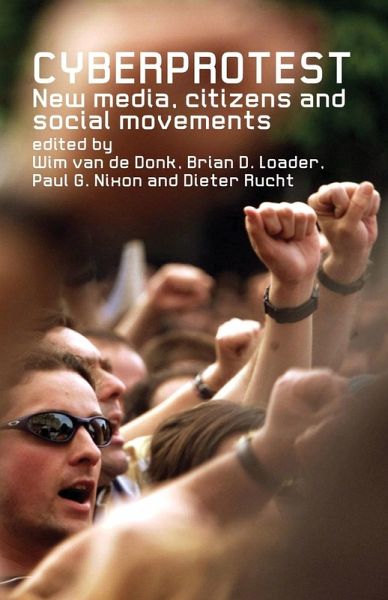
Cyberprotest
New Media, Citizens and Social Movements
Herausgeber: de Donk, Wim van; Nixon, Paul G.; Loader, Brian D.
Versandkostenfrei!
Versandfertig in 1-2 Wochen
65,99 €
inkl. MwSt.
Weitere Ausgaben:

PAYBACK Punkte
33 °P sammeln!
Through a number of different international examples answers are sought to questions such as: to what extent and in what forms do social movements use ICTs?; how do new ICTs facilitate new patterns and forms of citizen mobilization?; how does this use affect the relationship between social movements and their members?; how do ICTs change the way social movement organizations communicate with each other?; and how do they affect the way these movements mobilize and intervene in public debates and political conflicts?
Cyberprotest explores the effects of the synergy between ICTs and people power, analyzing the implications for politics and social policy at both a national and a global level.




